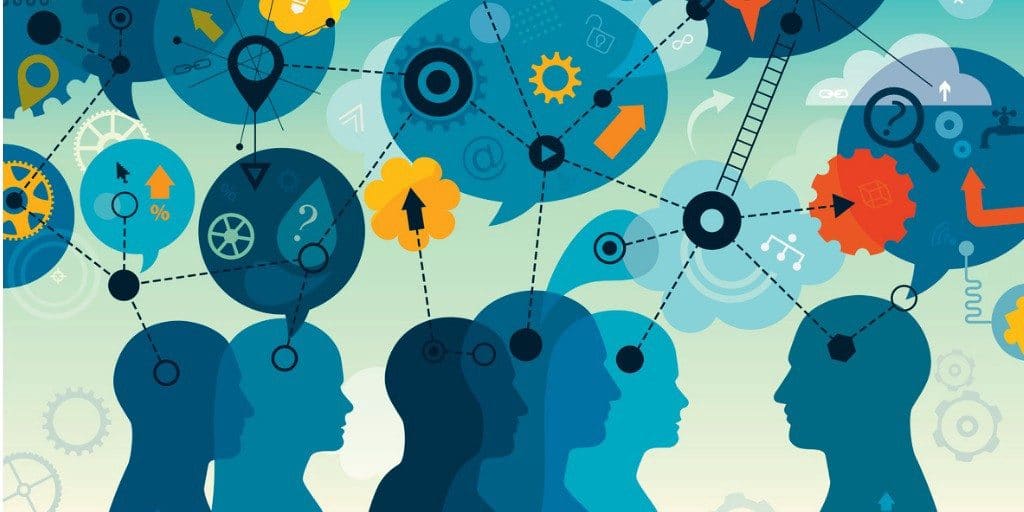
You can stop your search for easy learning methods right here. Every linguist worth their salt will tell you that they do not exist! However, you can also end up in a situation where your honest effort to learn a language doesn’t quite cut it. You need more than that.
At the end of the day, you have to enrich your education with structure, and it usually comes in the form of tried, true, and effective methods for learning a second language. Whether you want to study abroad or pursue a career in legal and medical translations, learning a second language can be a rewarding experience should you follow the right way of doing it.
1. Rely on (frequent) word clusters
Sadly, knowing basic vocabulary doesn’t make a polyglot. Take the example of your mother tongue – you probably know many words that you’ll rarely use, if ever.
Around 1000 most frequent English words comprise about 80% of English literature. A similar rule applies to most languages around the world since communication is primarily about utility. Accordingly, these frequently used words are often combined into shorter phrases.
If you read the info on IELTS vocabulary and lexical resource, you’ll learn that collocations, defined as word groups that have an above-average possibility of being found together, are very much the focal points of internationally standardized tests and learning methods.
You can use these phrases to your advantage and get a solid foundational knowledge of the language that interests you. You will not only easily transition to more complicated words and grammar, but you’ll also be primed and ready to communicate in that language fairly quickly.
2. Consume media and focus on cultural touchstones
Digitalization has opened up a door to a world of possibilities, hasn’t it? All you’ve got to do is tap into the right channels and start consuming media in the language you’re trying to learn.
YouTube is a reliable go-to platform for countless colorful channels that offer lessons in different formats. Social media has been proven to be helpful as well. Of course, you should look further than that, and luckily, you’ll find an abundance of media and platforms.
Movies, TV shows, and even comic books are also excellent media sources for learning a new language. You can even argue that they enhance learning. After all, language informs culture, and vice-versa.
Consuming a culture steeped in the right phrases, words, and turns of the tongue will put you in the best frame of mind for assimilating the language.
3. Create situations for yourself
Some of the advice you’re guaranteed to encounter online amounts to “travel abroad, speak to a foreign person.” These are definitely effective ways to learn a language, specifically because they put you in a situation where you’re forced to use it in practice.
However, most of us don’t have the luxury of time or financial backing to secure these kinds of circumstances as frequently as we need them to truly learn a language. So instead, you can create situations for yourself.
Let’s take an example. One of the essential aspects of language and its grammar is where a subject (you) relates to other objects in space.
You can practice a new language in your own home by noticing different objects around the house and trying to describe their location in relation to yourself or another object.
This is an insanely useful method for embedding basic language skills into your mind without resorting to elaborate scenarios. Furthermore, you’ll feel more comfortable practicing this at home, with your trusted language learning book by your side. Just don’t peek between its covers too much, without having tried your absolute hardest to remember the prepositions!
Conclusion
Last but not least, be ready to make mistakes. While this is not a method, strictly speaking, it is an essential part of learning anything, including languages.
Don’t be one of those people who stall their progress by feeling anxious to speak out. Your teacher will certainly understand and even encourage you to make mistakes. After all, they know that we all learn best through practice and correction.
This is an article provided by our partners network. It does not reflect the views or opinions of our editorial team and management.
Contributed content

IntelligentHQ Your New Business Network.
IntelligentHQ is a Business network and an expert source for finance, capital markets and intelligence for thousands of global business professionals, startups, and companies.
We exist at the point of intersection between technology, social media, finance and innovation.
IntelligentHQ leverages innovation and scale of social digital technology, analytics, news and distribution to create an unparalleled, full digital medium and social business network spectrum.
IntelligentHQ is working hard, to become a trusted, and indispensable source of business news and analytics, within financial services and its associated supply chains and ecosystems.










